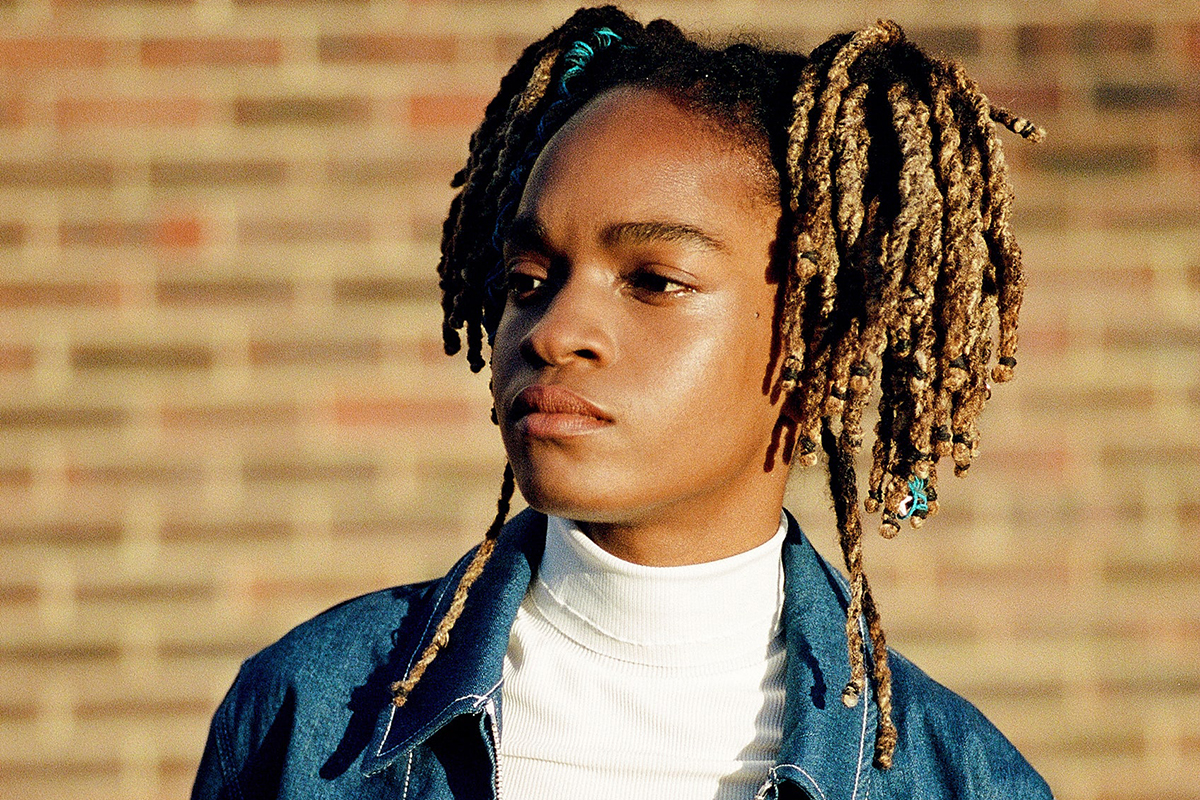Koffee Scores Big With Title Track On ‘The Harder They Fall’ Soundtrack

Grammy Award-winning singer Koffee has added a major movie soundtrack to her growing list of accomplishments.
Koffee joins her compatriot Barrington Levy as Reggae/Dancehall stars, whose voices will be featured on the soundtrack for the action/adventure all-black Western film The Harder they Fall, which stars Jonathan Majors, Zazie Beetz, Idris Elba, Regina King, LaKeith Stanfield and Delroy Lindo, and others. Levy’s Here I Come hit track from his 1985 album of the same name, was remixed to feature in the film, his voice dominant in its trailer which was disseminated a few months ago. The remixed song has since been released on streaming platforms.
In a Tweet this morning, Koffee teased a 30-second clip of her original title track, The Harder They Fall, produced by Jeymes Samuel. The full soundtrack, which will reportedly also feature Jay-Z, Jadakiss, Lauryn Hill, and others, will be out this Friday.
"THE HARDER THEY FALL"
ft: KOFFEE
PRODUCED BY JEYMES SAMUELFrom "The Harder They Fall" Soundtrack
Out This Friday
Motion Picture in theaters now and on @Netflix Nov. 3rd pic.twitter.com/GOz0pUz5GP— Koffee (@originalkoffee) October 27, 2021
The title of the film appears to take from the film 1956 The Harder They Fall, which was an adaptation of the 1947 Budd Schulberg novel of the same name. The director has not said, but it might also have been influenced by the 1972 Perry Henzell-directed film The Harder They Come which starred Reggae icon Jimmy Cliff and the hit song of the same name which was also recorded by Cliff in 1972.
Netflix summarises the film as surrounding an outlaw bearing the name Nat Love (Jonathan Majors) who is “gunning for revenge”, saddling up “with his gang to take down enemy Rufus Buck, a ruthless crime boss who just got sprung from prison”.
The various reviews of the film by critics have been coming in over the last few days. The Guardian described it as an enjoyable, “face-splatteringly brutal, gonzo revenge western… which aims to reclaim the often erased African American side of this genre and history” featuring the gun-toting gangsters of the old west wearing old-timey hats of all shapes and sizes”, while the Chicago Sun Times called it a “dusty 19th century gangland where men brawl and women do, too”.
As for the BBC, it described the Western, as opening with an intriguing disclaimer (that): “While the events in this film are fictionalised… These. People. Existed.”
“Without it, viewers might assume the movie is an imaginary tale, one of several cases of Hollywood re-casting historical periods and events with more ethnic minority characters than there were in reality… Except in this case, the opposite is true. A large number of cowboys were black, and yet traditionally the film industry has cast white men in the leading parts of Westerns, with black actors generally in deferential roles,” the BBC noted.
The $90 million budget film is out now in theaters and will be available on Netflix on November 3.
Koffee’s hit song Toast was previously featured in Jordan Peele’s horror film Us (2019) and more recently in the Netflix thriller Fatale (2020). Throne, which also appeared on her Grammy-winning Rapture EP, was used on the soundtrack for the film Rocks (2020).
The new developments come ahead of the release of Koffee’s first full-length album via RCA Records which is set for 2022.
The Spanish Town native recently released visuals for the first single titled West Indies, which is her first release in a year, the previous being the Pressure (remix) with Buju Banton in October 2020.
Her 2020 summer banger Lockdown, had created history, surpassing one million streams on YouTube within two days. It had also debuted at the top of the global iTunes reggae chart and the Jamaican YouTube charts and shot to number on in more than six countries on Apple Music.
In February this year, the Spanish town native had said she was coming with “something new and unexpected” for those familiar with her music and that she wanted to promulgate unity in her upcoming body of work.
“It will be a very interesting twist for people who knew my music before, and also for people who will discover me. I think it will be really awesome,” the Ardenne High School graduate had said.
